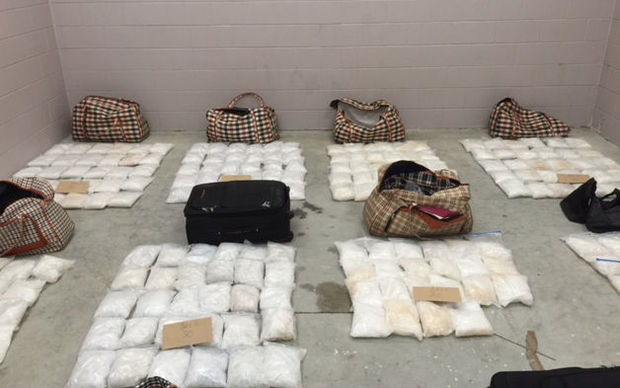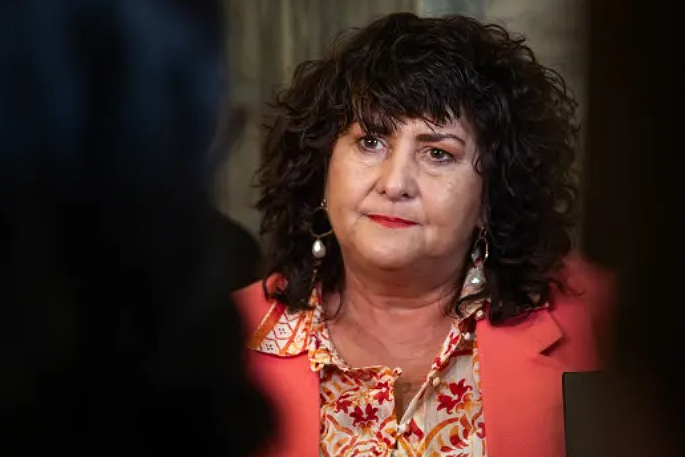The Government will invest an extra $35 million over four years to strengthen New Zealand’s borders and target transnational organised crime, Customs Minister Casey Costello said.
Customs continued to face rising pressure from international drug syndicates, which were increasingly targeting New Zealand due to the country’s high street prices for illicit substances, Costello said.
“Customs is doing a great job stopping illicit drugs entering the country, but New Zealand is increasingly being targeted by organised crime groups,” Costello said.
“The Government is committed to ensuring law and order, so it is investing in the tools and capacity agencies need to meet growing challenges.”
The new funding includes $21 million in operating expenditure and $5.5 million in capital investment, with an additional $8.2 million to be recovered through third-party levies and fees.
Costello said the money would support up to 60 new roles across Customs, with staff added in intelligence, investigations, prosecutions, and border operations.

8.5 tonnes of meth from entering the country in the last two years.
“In 2014, Customs seized 55 kilograms of methamphetamine in the entire year. Last year Customs stopped, on average, 90 kilograms of meth every week,” Costello said.
“In the past two years, Customs and its offshore partners stopped nearly 8.5 tonnes of meth from entering the country and harming New Zealanders.”
The additional funding will focus on three main areas: intercepting high-frequency, low-quantity drug smuggling through mail and airports; targeting trusted insiders in the supply chain who facilitate trafficking; and expanding New Zealand’s presence offshore with another liaison officer to work with international enforcement partners.
Costello said that while major drug shipments often captured public attention, a large volume of harm stemmed from smaller smuggling attempts, particularly via mail and air travel.
She said the new investment would help Customs respond more effectively to this growing trend.
She said Customs would also enhance its use of advanced technology to detect threats earlier and improve information sharing with global agencies.
“This new funding will provide that,” Costello said.



5 comments
Another option
Posted on 10-05-2025 17:45 | By earlybird
would be to massively increase the sentences handed down. The financial return on a successful drug import is so large that the crims think it's worth the risk of getting caught. The government & justice system need to change that way of thinking.
One last option....
Posted on 11-05-2025 06:56 | By DaveTheCynic
Legalise/decriminalise the use of recreational drugs.
@ earlybird
Posted on 11-05-2025 20:53 | By Yadick
Spot on. Great comment. Our Police do an outstanding job and the courts just mampy pampy the criminals. You're absolutely spot on.
@Yadick
Posted on 12-05-2025 13:59 | By morepork
While I agree that sentences are too light, there are a couple of things to remember:
1. Longer sentences cost us (taxpayers) more.
2. There is no evidence that longer sentences will deter drug cartels.
It seems incronguous that we self impose a higher cost on our society when we catch these people, by imposing longer sentences on them.
What other ways could we deter them?
Could we require them to take (imbibe) the product they are selling? (Many probably already do...)
Could we impose community service in an area trying to deal with drug addiction?
Revoke NZ citizenship and banish them from ever coming here? (What if they were born here?)
I think the most effective punishment is punitive large fines and confiscation of all property and luxury goods. (Obtained from drug running or not...)
Hit them in their pockets. That's why they do it.
@ morepork
Posted on 13-05-2025 12:25 | By Yadick
I agree and at the end of the day it is still a sentence they will have to bear but whatever it is I still standby my comment that, . . . Our Police do an outstanding job and the courts just mampy pampy the criminals.
At the end of the day, incarcerated or involved in criminal activity and behavior it's costing us (taxpayers) regardless.
Leave a Comment
You must be logged in to make a comment.